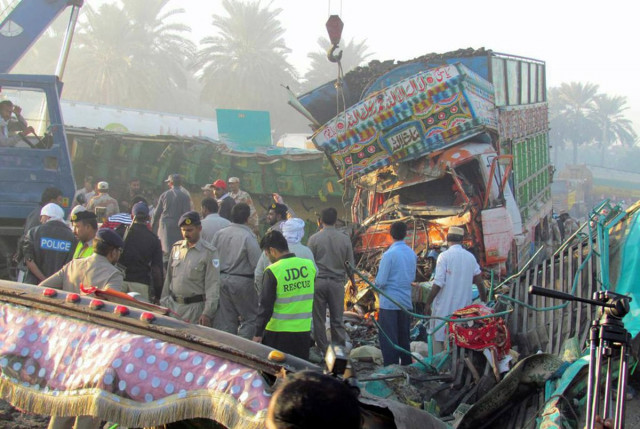Fate, crashes and culture
Educating a future generation of drivers as to the best practices on the road gives some hope for the future

Fate, crashes and culture

There have been several academic studies of traffic accidents and fatalities in Pakistan and there is unanimity about their findings. Poor driving skills, badly maintained vehicles, badly built and maintained road infrastructure, and most pervasive of all in surveys of attitudes to driving and road safety, a fatalistic mindset. It is that mindset that ‘allows’ risky behaviour on the part of drivers and vehicle operators, and is extremely difficult to counter so deeply embedded is it in the national psyche.
Coincidentally, on the same day as the crash, the Inspector General of the National Highways and Motorway police said that road safety and traffic rules should be taught in every school in the land as part of standard curriculum. The motorway police have circulated a request to this effect to all the provinces and there has been a general acceptance of the suggestion. This is a very positive step in the right direction. It is unlikely that the current generation of drivers is going to change its behaviour, but educating a future generation of drivers as to the best practices on the road gives some hope for the future. Road safety education features in the school curriculum of every developed nation. Children leave school with a grasp of road safety, risk avoidance and harm reduction. Changing cultural attitudes and behaviours is a long-term job, a generational shift. We welcome this initiative and give it our whole-hearted support in the hope of safer roads for all.
Published in The Express Tribune, November 12th, 2014.
Like Opinion & Editorial on Facebook, follow @ETOpEd on Twitter to receive all updates on all our daily pieces.



















COMMENTS
Comments are moderated and generally will be posted if they are on-topic and not abusive.
For more information, please see our Comments FAQ